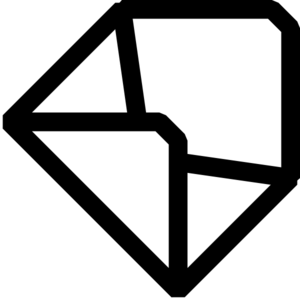| Kayla W. "As a student affairs professional, I help students be successful and to ultimately obtain a degree. My goal is to help students at my university to have a well-rounded college experience and to leave the university with a degree and the knowledge and experiences they need to be successful human beings. More specifically, as a Transfer Evaluation Coordinator, I work with students who have earned college coursework and credit to determine which course credit equivalents that they will receive credit for at my specific university." |
 |
Education
Required License(s)
None
|
Required Degree(s)
Bachelor's degree (in any field) is required for my specific position, but other positions in Student Affairs may only require a high school diploma.
|
Importance of GPA

somewhat important
|
Kayla's Highest Degree: Bachelor's degree (Bachelor of Science)
Kayla's College Major: Mass Communications with a focus on Public Relations, and a minor in Marketing.
Kayla's College GPA Range: 3.1-3.5
Salary
$30,000-$50,000
can vary depending on location or institution
can vary depending on location or institution
Getting the Job
How did you get your job?
As a student, I worked as an orientation leader (orienting incoming freshman to campus and the world of college, etc.), as well as an ambassador for the Admissions department. I gained experience by volunteering as an undergraduate.
|
How important was networking to landing your position?
Networking is huge in the world of higher education. I didn't specifically know anyone in the department I now work in, but I went to the institution as an undergraduate student and I think that helped.
|
Life on the Job
What is a typical day (or week) for you like?
Typically, I work Monday through Friday 8-5, but have to work about 3 Saturdays and 3 Sundays each year for special events (e.g., graduations, preview days, orientations). In my specific position, I sit at a desk most of the day doing evaluation of transcripts/data entry, answering emails. I see students from time-to-time. Working in this position is very behind the scenes in the world of higher ed.
|
How closely does your typical day (or week) match up to the general "job description" for your position?
I would say that my position matches up about 99% with the job description that was posted when I was hired.
|
Does being a woman affect any aspect of your career?
Honestly, there are more women in the field of Student Affairs than there are men. If anything, I believe it may help to be a woman in Student Affairs. However, diversity is a huge part of the higher education world and people of all ethnicities, races, genders, etc. are accepted!
|
What is the best thing about your job?
I get to help students to find, understand, and develop their dreams. Working in higher education is rewarding and something I am incredibly passionate about.
|
What is the worst thing about your job?
There are a ton of policies that sometimes upset the student and their families. These policies are not meant to hinder, but it sometimes feels like they do.
|
How demanding is your job?
The institution that I work at is growing very rapidly, which means that more and more students are attending, but we still have the same amount of people in our office. It can be a large workload that seems to never end, and it can also be very tedious work. However, thinking about how much it helps the student to become who they want and need to be makes it all worth it.
|
Do you have any advancement opportunities?
YES! I work in the Registrar's Office, but this position can be housed in Admissions at other institutions. I could move up from my position to my supervisor's position, which is the head of the Transfer area. Above the Transfer area manager is the Registrar. Also, working in Student Affairs, it is often that people may move from area to area on a campus, this includes stepping up into higher roles, such as Area Directors or VP or AVPs of divisions. I plan on staying in the field of Student Affairs for the rest of my life, and would love to become an Area Director at some point.
|
Advice for You
What are the skills, characteristics, or talents that are most important to be effective in your position?
It is very important to have a passion for the student. Fun, bubbly personalities and being a people person is important. Anyone looking to work in higher education should be able to follow policies and procedures, be a hard-worker, optimistic, and have a great eye for detail and accuracy.
|
What advice would you give to someone thinking about pursuing a career like yours?
BE YOURSELF! As mentioned before, diversity is something that every institution is looking for. Don't try to fit into some kind of peg.
|
If you could do it over again, would you still pursue the same career?
ABSOLUTELY! I'm actually going back to school to earn my Master's in the field.
|

Follow Up
Want to learn more?
|
 |














